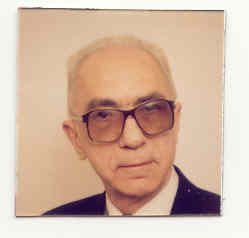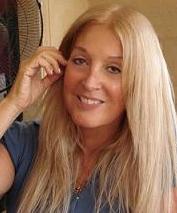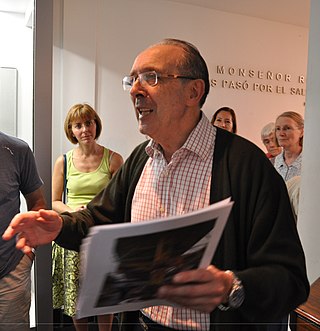Related Research Articles

Jacques Dupuis was a Belgian Jesuit priest and theologian. He spent several decades in India and taught at the Pontifical Gregorian University in Rome.

The Dicastery for the Doctrine of the Faith (DDF) is a department of the Roman Curia in charge of the religious discipline of the Catholic Church. The Dicastery is the oldest among the departments of the Roman Curia. Its seat is the Palace of the Holy Office in Rome. It was founded to defend the Catholic Church from heresy and is the body responsible for promulgating and defending Catholic doctrine.
Anthony "Tony" de Mello, SJ, was an Indian Jesuit priest and psychotherapist. A spiritual teacher, writer, and public speaker, de Mello wrote several books on spirituality and hosted numerous spiritual retreats and conferences. He continues to be known for his storytelling, which drew from the various mystical traditions of both East and West.

Karl Rahner was a German Jesuit priest and theologian who, alongside Henri de Lubac, Hans Urs von Balthasar, and Yves Congar, is considered to be one of the most influential Catholic theologians of the 20th century. He was the brother of Hugo Rahner, also a Jesuit scholar.
The following outline is provided as an overview of and topical guide to Christian theology:

Vassula Rydén was an author, public speaker, and self-proclaimed Christian mystic living in Switzerland who said she received messages from Jesus Christ and the Blessed Virgin Mary. Her writings frequently call for people "to repent, love God, and unify the churches." She developed a large following, particularly among Roman Catholics, who came to her lectures purchasing her writings and tapes. She wrote the messages in English, and changed some writings between editions.

Pedro Arrupe Gondra, was a Spanish Catholic priest who served as the 28th superior general of the Society of Jesus from 1965 to 1983. He has been called a second founder of the Society, which he led in the implementation of the Second Vatican Council, especially with regard to faith that does justice and preferential option for the poor.
Miaphysitism is the Christological doctrine that holds Jesus, the Incarnate Word, is fully divine and fully human, in one nature (physis). It is a position held by the Oriental Orthodox Churches. It differs from the Dyophysitism of the Catholic Church, Eastern Orthodox Churches, and the major Protestant denominations as defined by the Council of Chalcedon in 451, which holds that that Jesus is one "person" in two "natures", a divine nature and a human nature.

Edward Cornelis Florentius Alfonsus Schillebeeckx was a Belgian Catholic theologian born in Antwerp. He taught at the Catholic University in Nijmegen. He was a member of the Dominican Order. His books on theology have been translated into many languages, and his contributions to the Second Vatican Council made him known throughout the world.
Francis Alfred Sullivan was an American Catholic theologian and a Jesuit priest, best known for his research in the area of ecclesiology and the magisterium.

John J. McNeill was an American Catholic priest, psychotherapist and academic theologian in the United States, with a particular reputation within the field of queer theology. McNeill was awarded the National Human Rights Award in 1984 for his contributions to lesbian and gay rights, and was made the Grand Marshal of the New York City Gay Rights Parade in 1987. McNeill was expelled from the Society of Jesus in 1987 at the request of the Vatican.

Jon Sobrino is a Spanish Jesuit Catholic priest and theologian, known mostly for his contributions to Latin American liberation theology. He received worldwide attention in 2007 when the Vatican's Congregation for the Doctrine of the Faith issued a notification for what they termed doctrines that are "erroneous or dangerous and may cause harm to the faithful."
Subsistit in is a Latin phrase which appears in Lumen gentium, the document on the church from the Second Vatican Council of the Catholic Church. Since the council, the reason for use of the term "subsists in" rather than simply "is" has been disputed. Generally, those who see little or no change in church teaching in Vatican II insist on the equivalence of subsistit in and "is". Those who point to a new, ecumenical thrust in Vatican II insist that the term was introduced as a compromise after much discussion, and acknowledges new elements in the council's teaching.
Margaret A. Farley is an American religious sister and a member of the Catholic Sisters of Mercy. She was Gilbert L. Stark Professor Emerita of Christian Ethics at Yale University Divinity School, where she taught Christian ethics from 1971 to 2007. Farley is the first woman appointed to serve full-time on the Yale School board, along with Henri Nouwen as its first Catholic faculty members. She is a past president of Catholic Theological Society of America.

Luis Francisco Ladaria Ferrer is a Spanish Jesuit, theologian and a cardinal of the Catholic Church. After a thirty-year career teaching theology, he joined the Roman Curia in 2004 as Secretary-General of the International Theological Commission. He was made an archbishop when named secretary of the Dicastery for the Doctrine of the Faith (CDF) in 2008 and served as its prefect from 2017 to 2023. He was raised to the rank of cardinal in 2018.
The Leadership Conference of Women Religious (LCWR) is one of two associations of the leaders of congregations of Catholic women religious in the United States. LCWR includes over 1300 members, who are members of 302 religious congregations that include 33,431 women religious in the United States as of 2018.

Gerhard Ludwig Müller is a German cardinal of the Catholic Church. He served as the Cardinal-Prefect of the Congregation for the Doctrine of the Faith (CDF) from his appointment by Pope Benedict XVI in 2012 until 2017. Pope Francis elevated him to the rank of cardinal in 2014.
Fr. Robert J. Spitzer is a Jesuit priest, philosopher, educator, author, speaker, and retired President of Gonzaga University in Spokane, Washington.
A notification by the Holy See is an official announcement by a department of the Holy See, the leadership of the Catholic Church in Rome.
Andrew Joseph Christiansen was an American Jesuit priest and author. He was Distinguished Professor of Ethics and Human Development at the Georgetown University Walsh School of Foreign Service, a senior fellow at the Berkley Center for Religion, Peace, and World Affairs, and the former editor-in-chief of the Jesuit magazine America. His areas of research included nuclear disarmament, nonviolence and just peacemaking, Catholic social teaching, and ecumenical public advocacy.
References
- 1 2 3 "Cover story -- Theological Disputes: Doctrinal jousting". natcath.org. Retrieved 2017-12-16.
- ↑ "Roger Haight | The University of Chicago Divinity School". divinity.uchicago.edu. Archived from the original on 2019-04-06. Retrieved 2017-12-16.
- ↑ "Notification on the book "Jesus Symbol of God" by Father Roger Haight S.J." www.vatican.va. Retrieved 2017-12-16.
- ↑ HEGY, Pierre. "Catholic Books Review: Roger HAIGHT, The Future of Christology". www.catholicbooksreview.org. Retrieved 2017-12-16.
- ↑ "The Vatican levies further penalties on Roger Haight, SJ | Commonweal Magazine". www.commonwealmagazine.org. 2 January 2009. Retrieved 2017-12-16.
- ↑ "Roger Haight | Center for the Study of World Religions". cswr.hds.harvard.edu. Retrieved 2017-12-16.
- ↑ "How Pope Francis is changing the Catholic Church". America Magazine. 2017-01-12. Retrieved 2017-12-16.
- ↑ "Roger Haight". wipfandstock.com. Retrieved 2017-12-16.
- ↑ Province, SNJM U.S.-Ontario. "Video interview with Roger Haight" . Retrieved 2017-12-16.
- ↑ "Theology of the Cross". doi:10.1111/j.1468-2265.2009.00525.x.
{{cite journal}}: Cite journal requires|journal=(help) - ↑ "Notification on the book "Jesus Symbol of God" by Father Roger Haight S.J." www.vatican.va. Retrieved 2017-12-16.
- ↑ "The Silenc/ing of Roger Haight, SJ". America Magazine. 2009-01-24. Retrieved 2017-12-16.
- ↑ "Roger Haight". The Christian Century. Retrieved 2017-12-16.
- ↑ "Losing Haight and Neuhaus - OnFaith". OnFaith. 2009-01-12. Archived from the original on December 16, 2017. Retrieved 2017-12-16.
{{cite news}}: CS1 maint: unfit URL (link) - ↑ "A Postmodern Apologetic Christology with Roger Haight". homebrewedchristianity.com. Retrieved 2017-12-16.